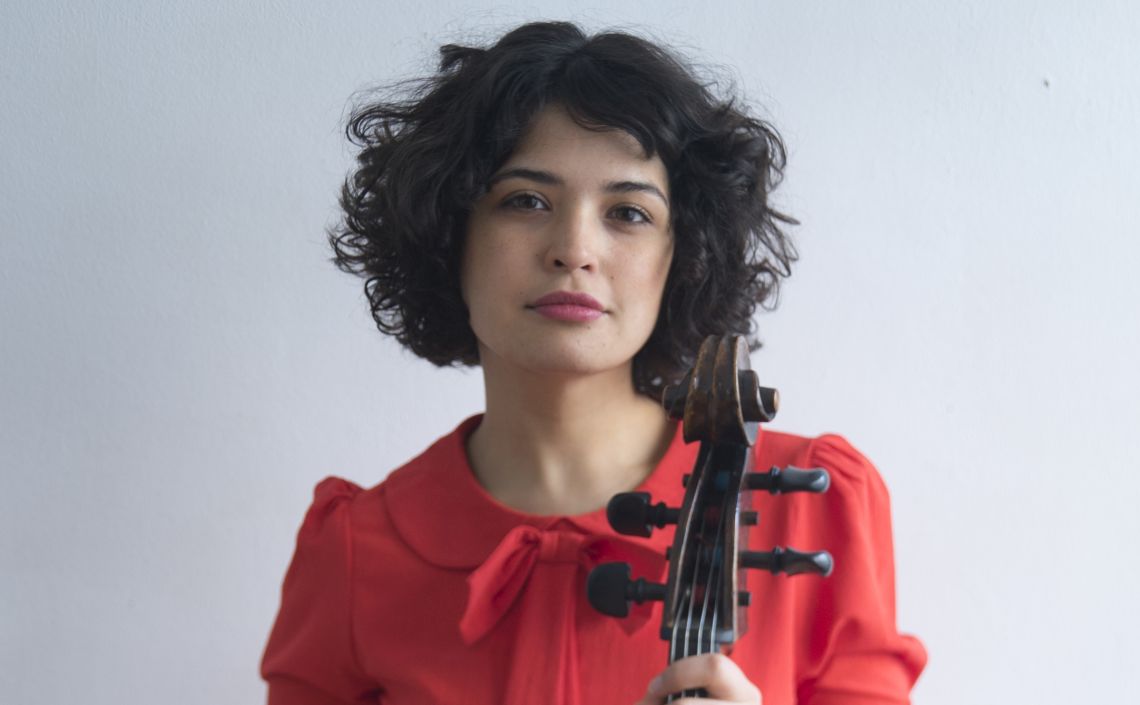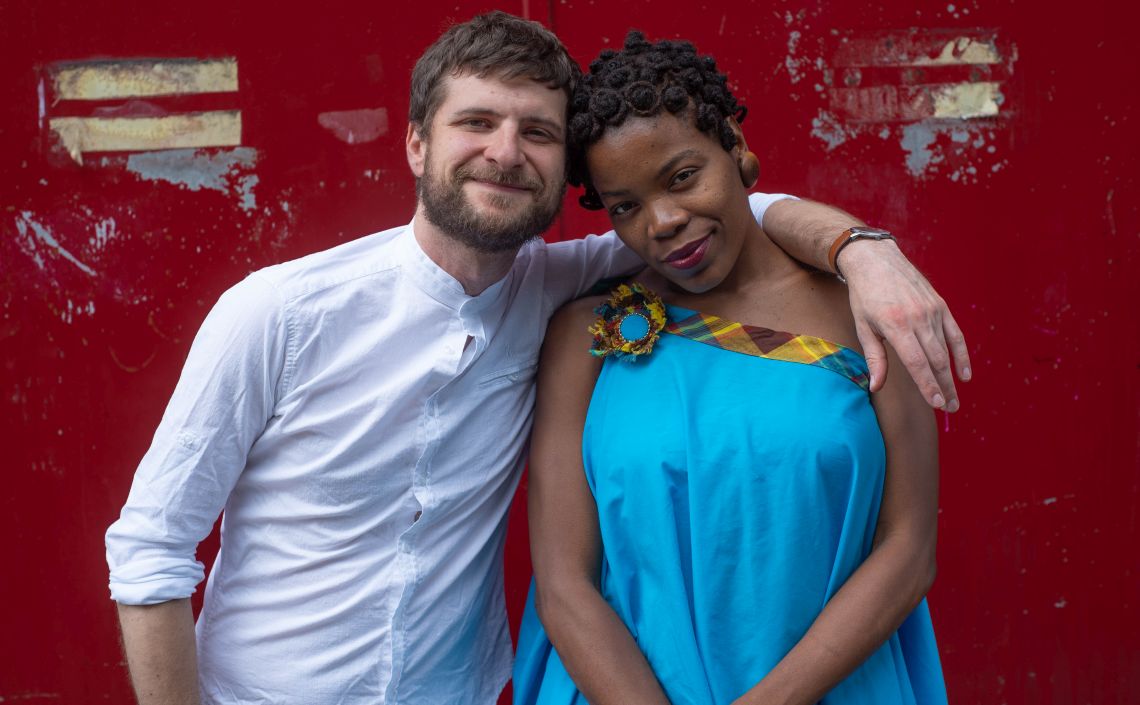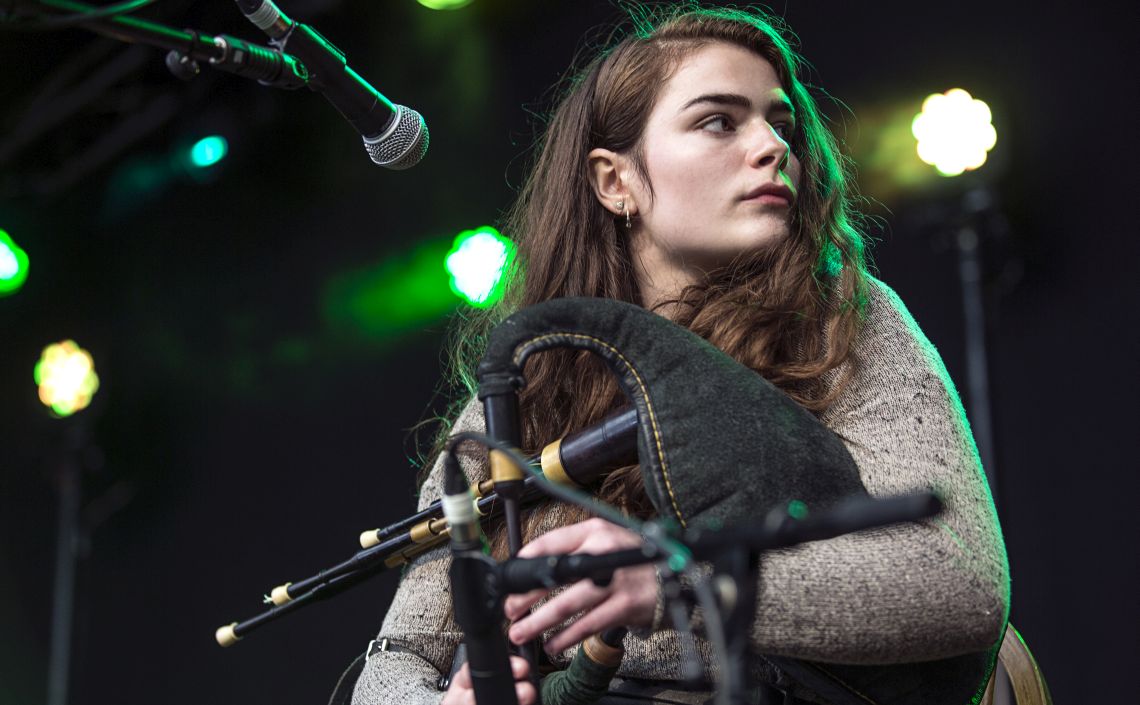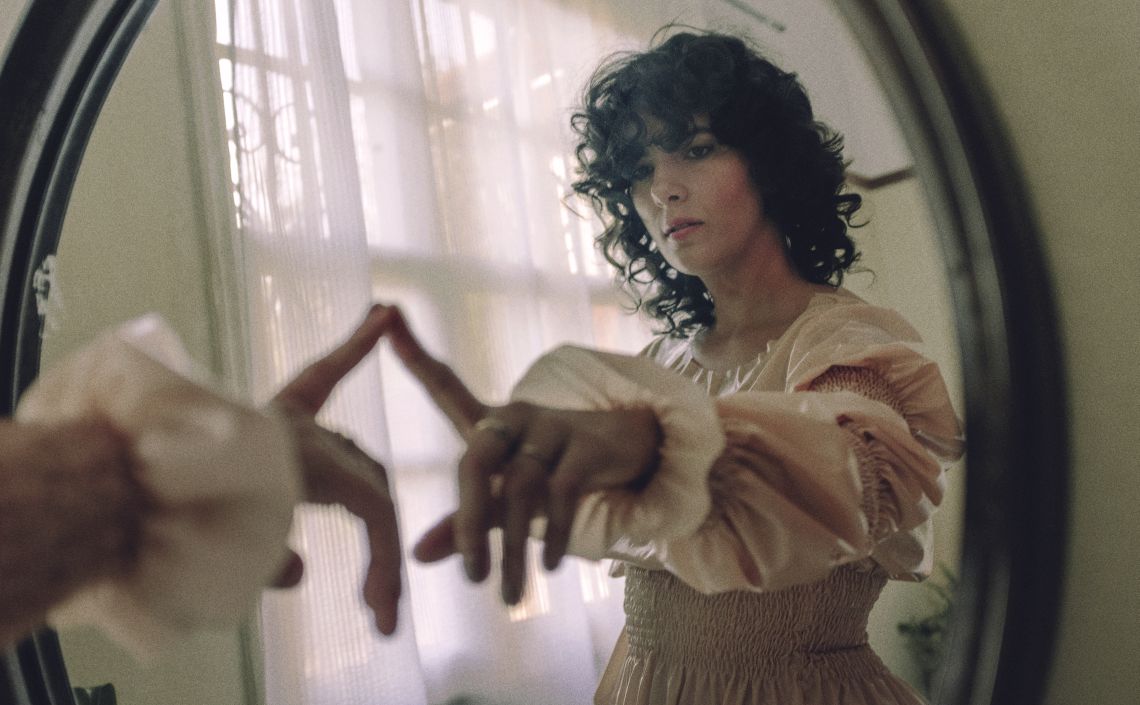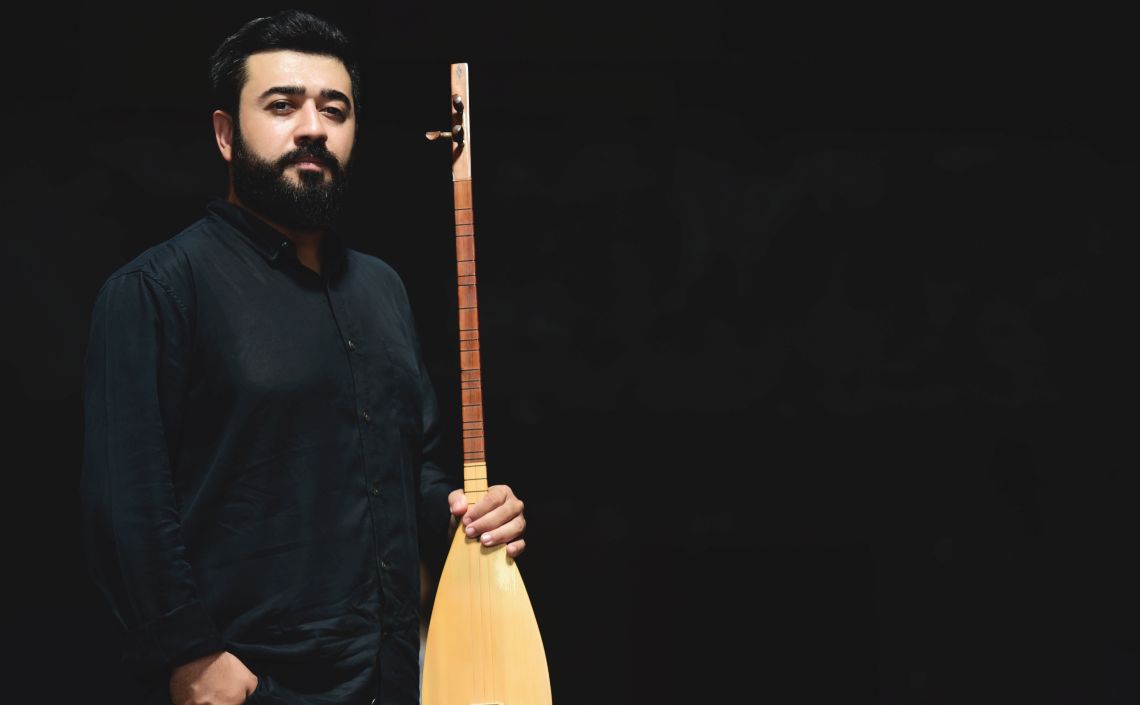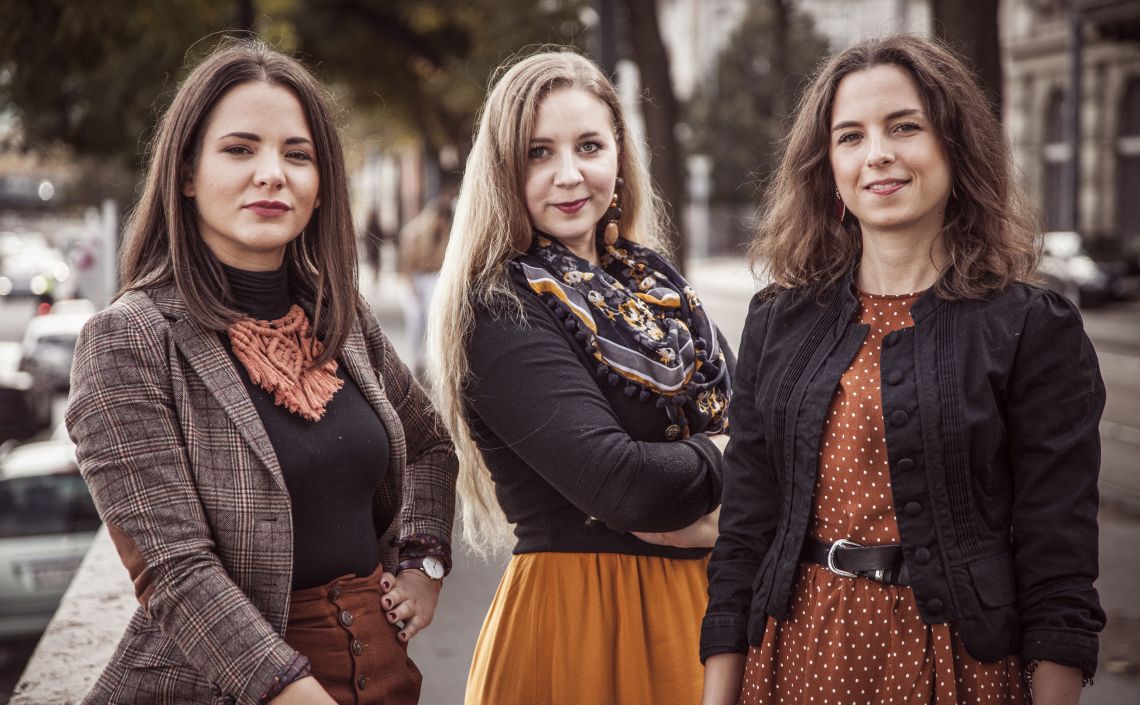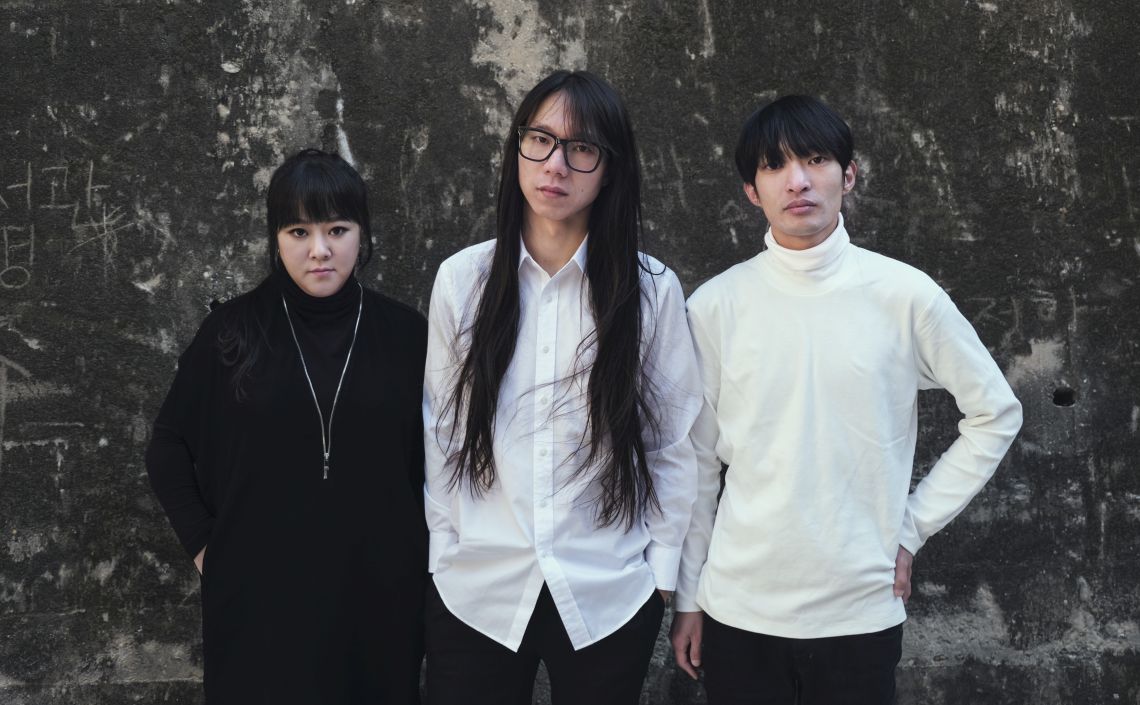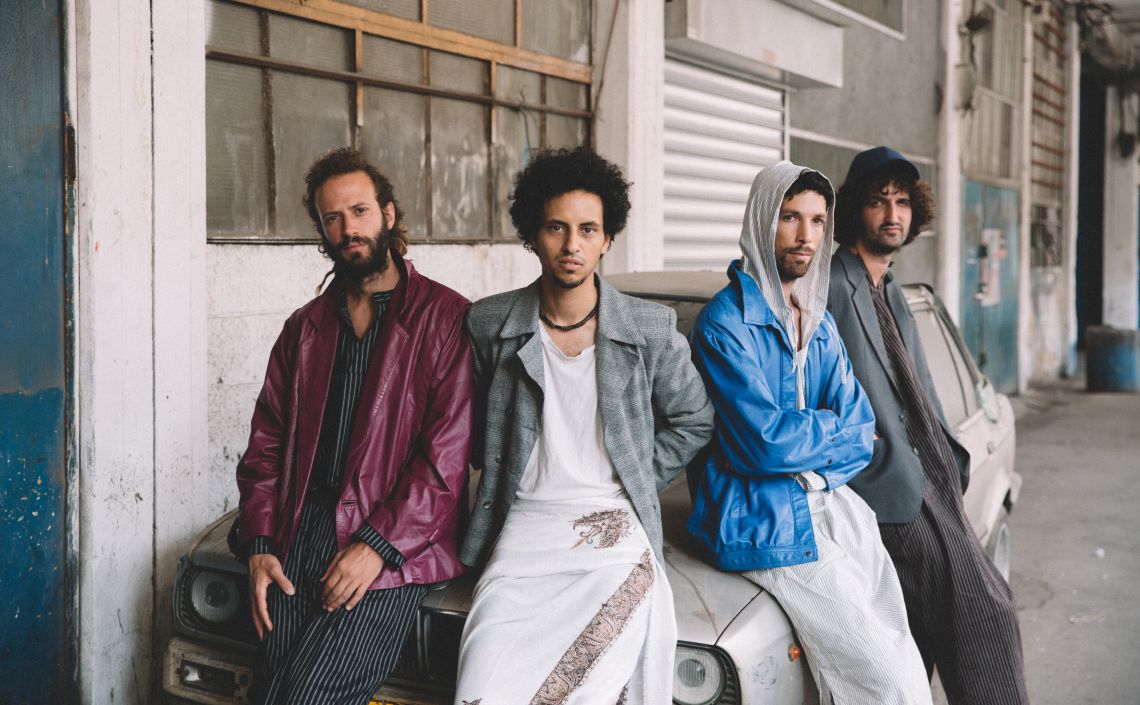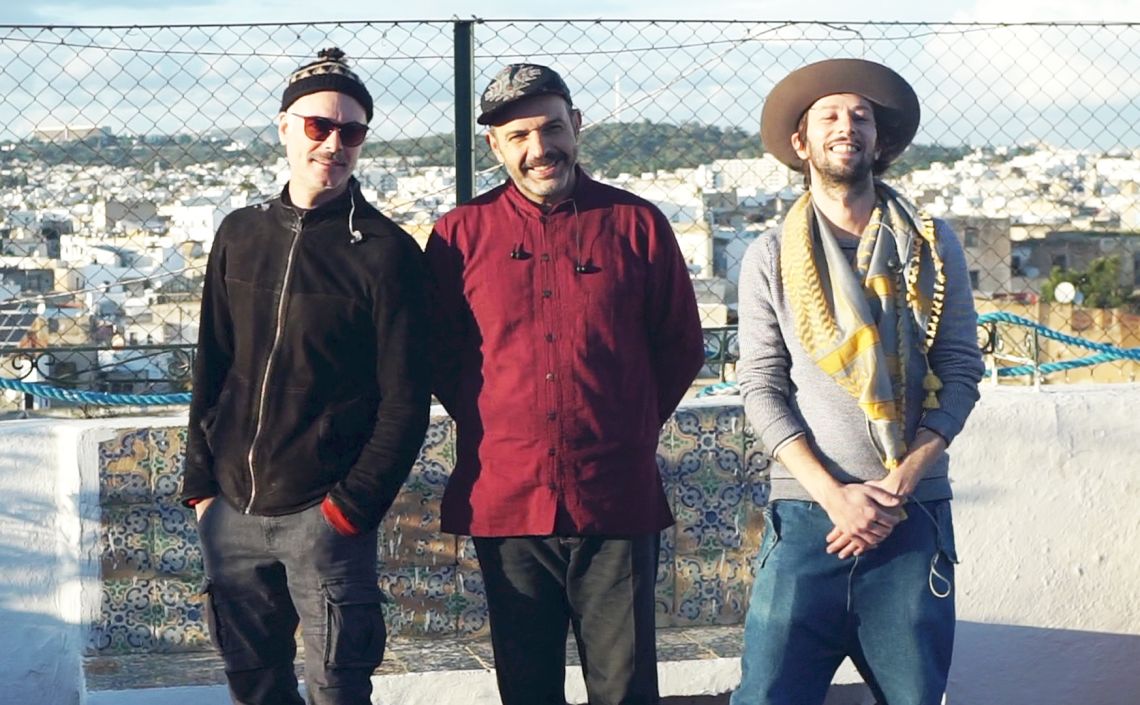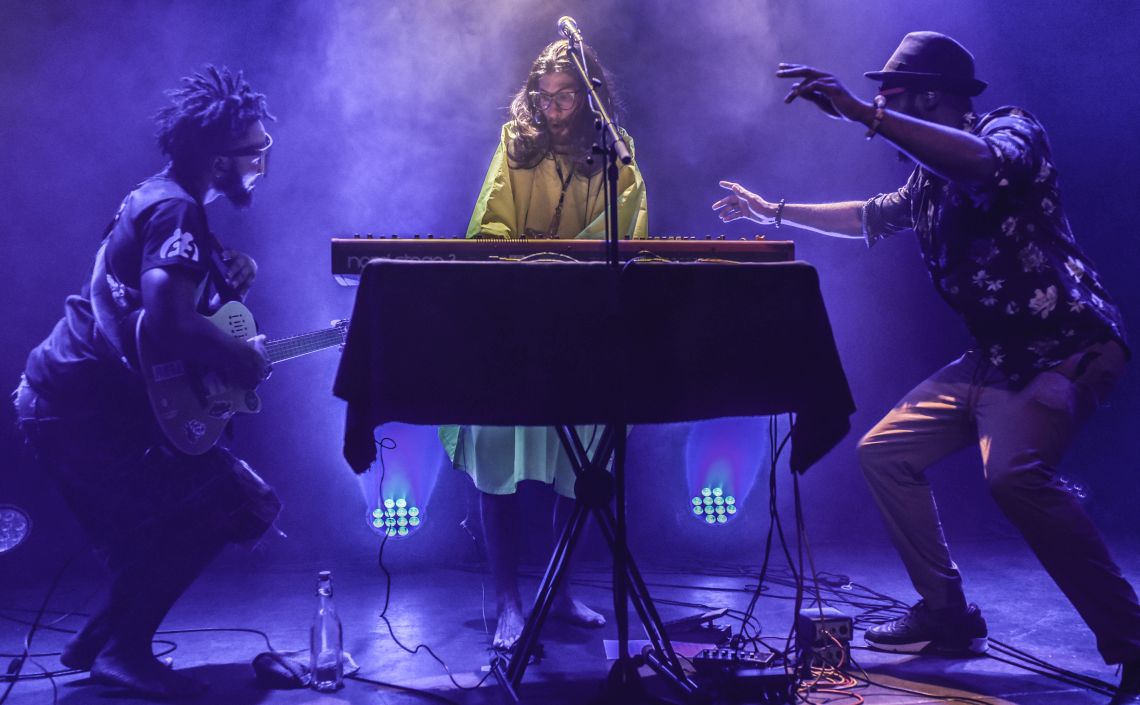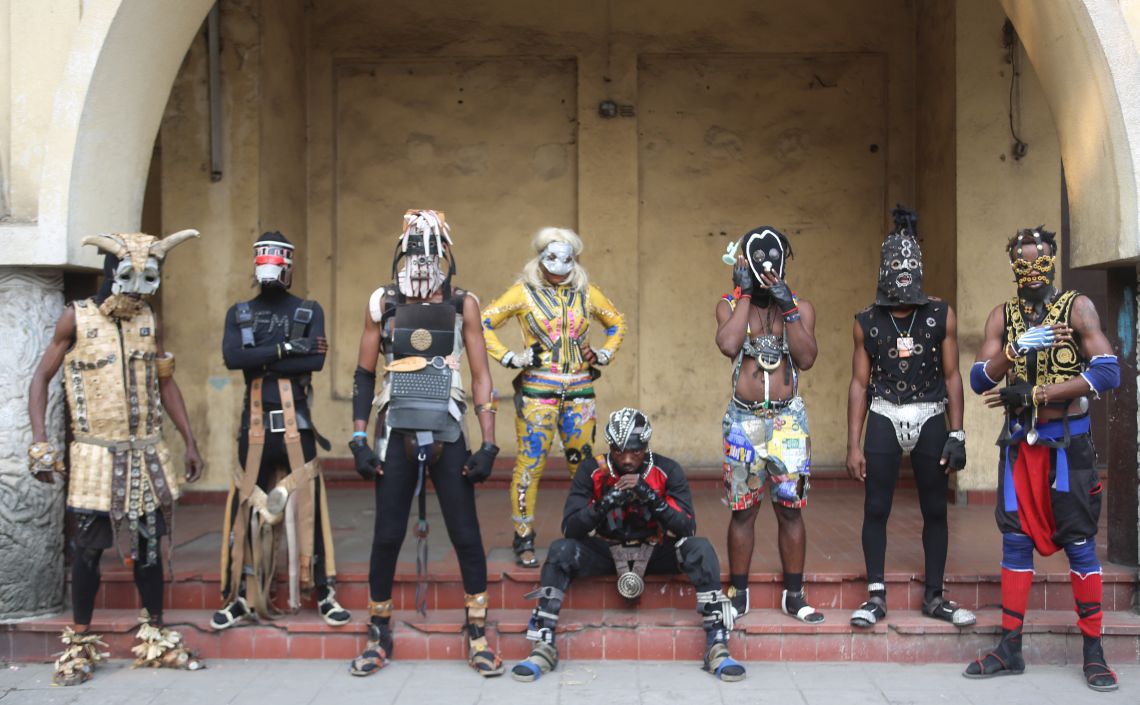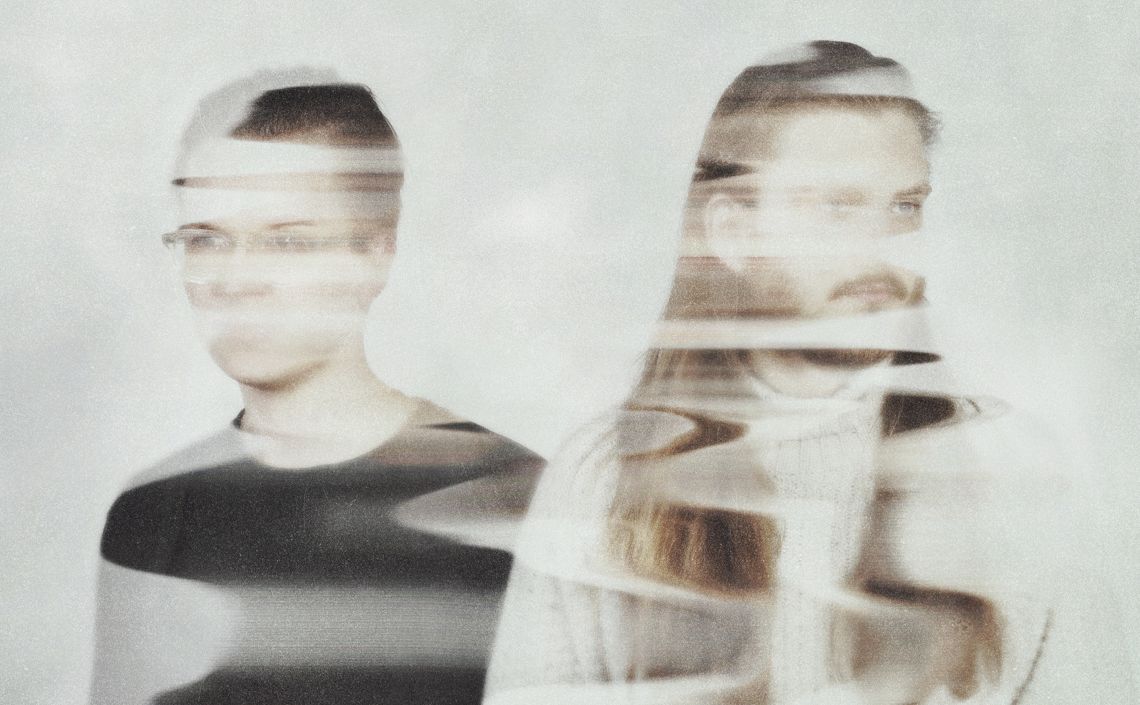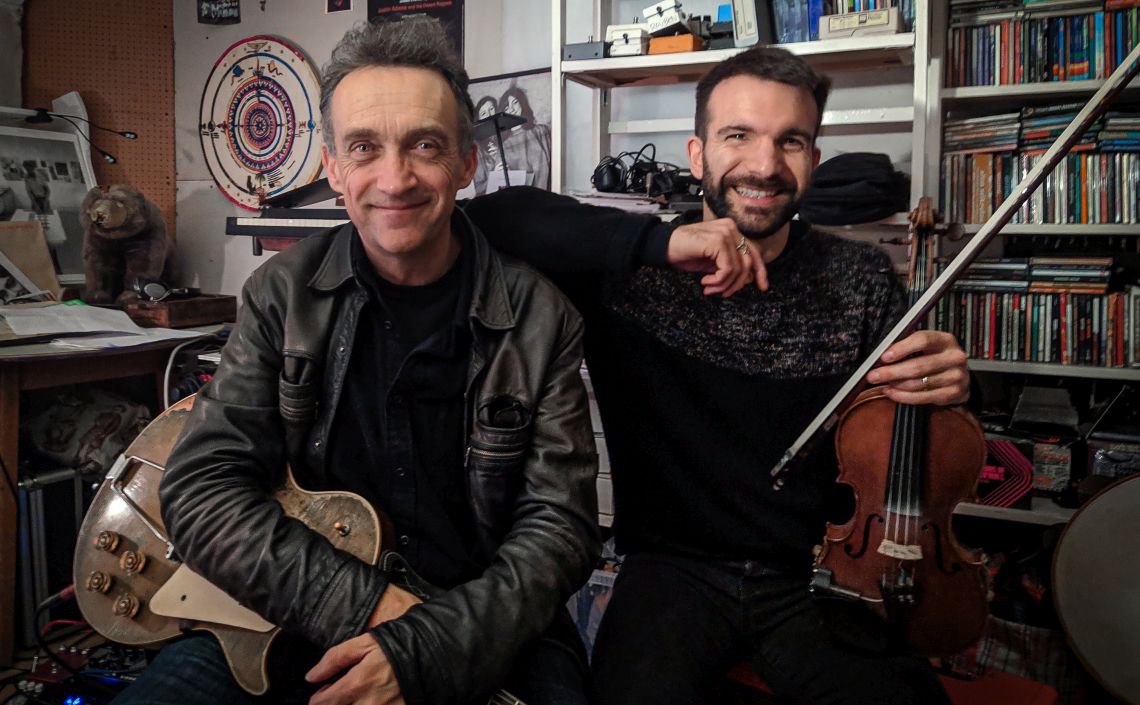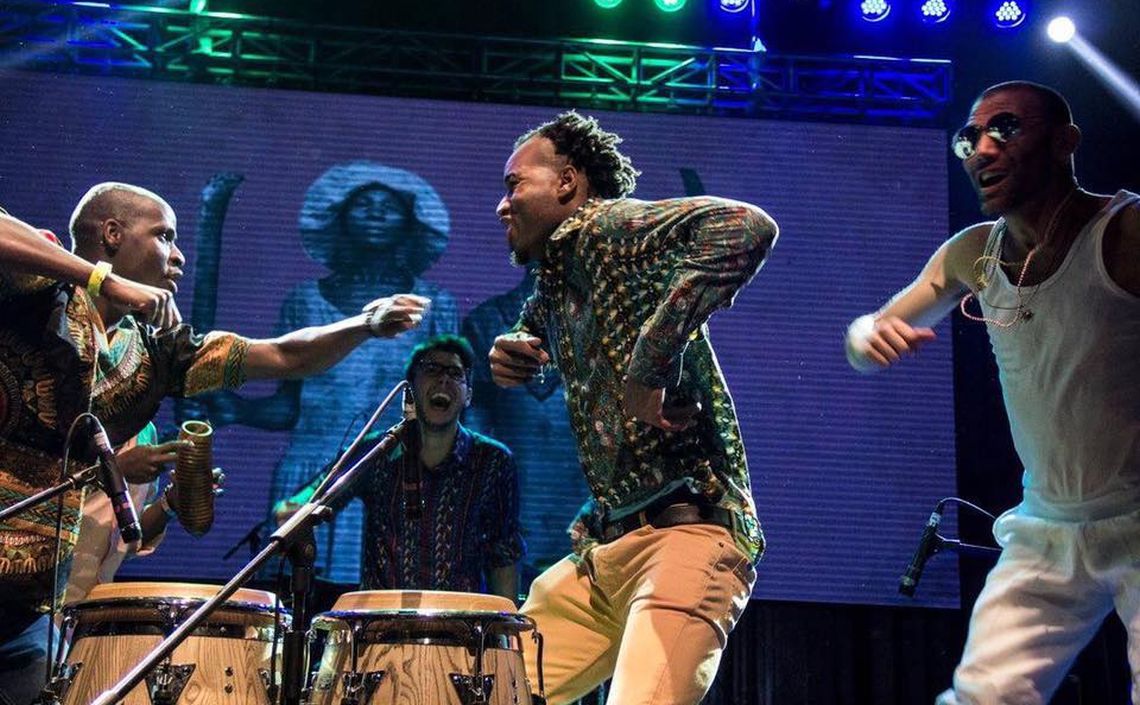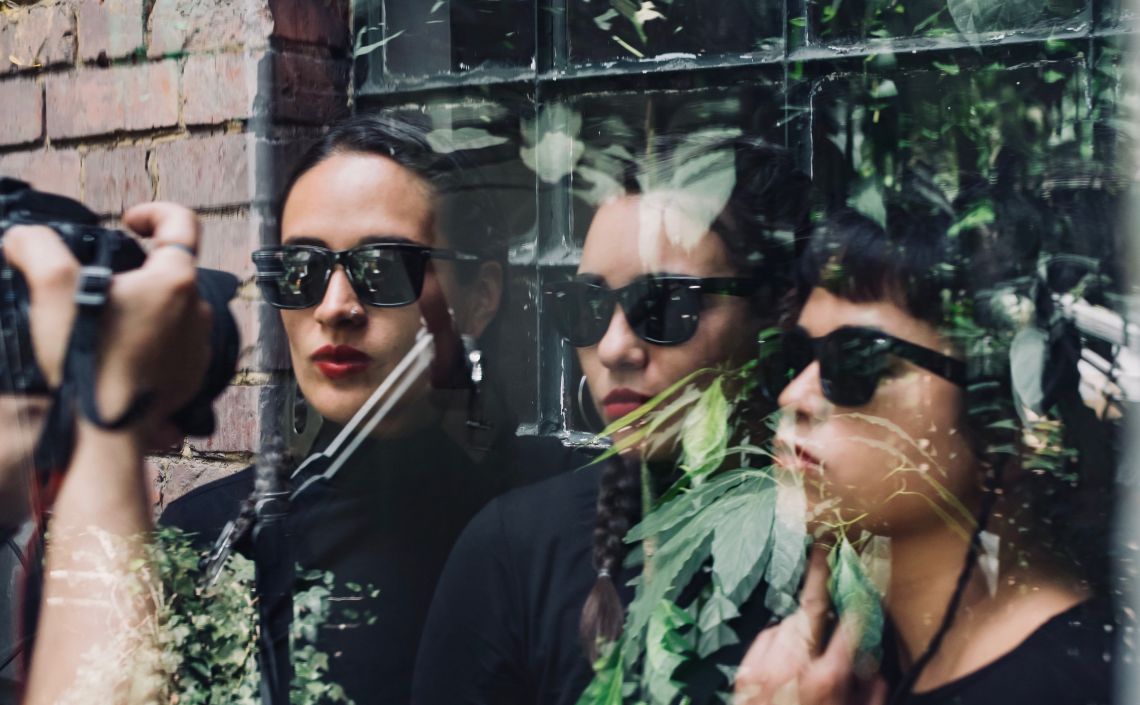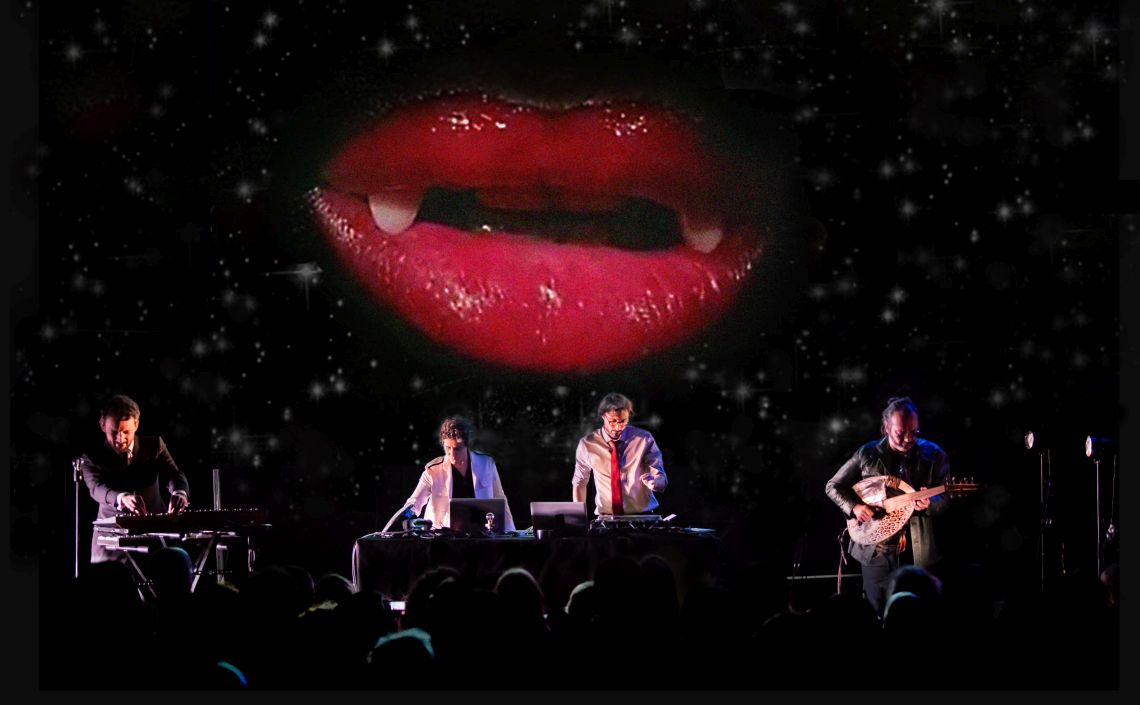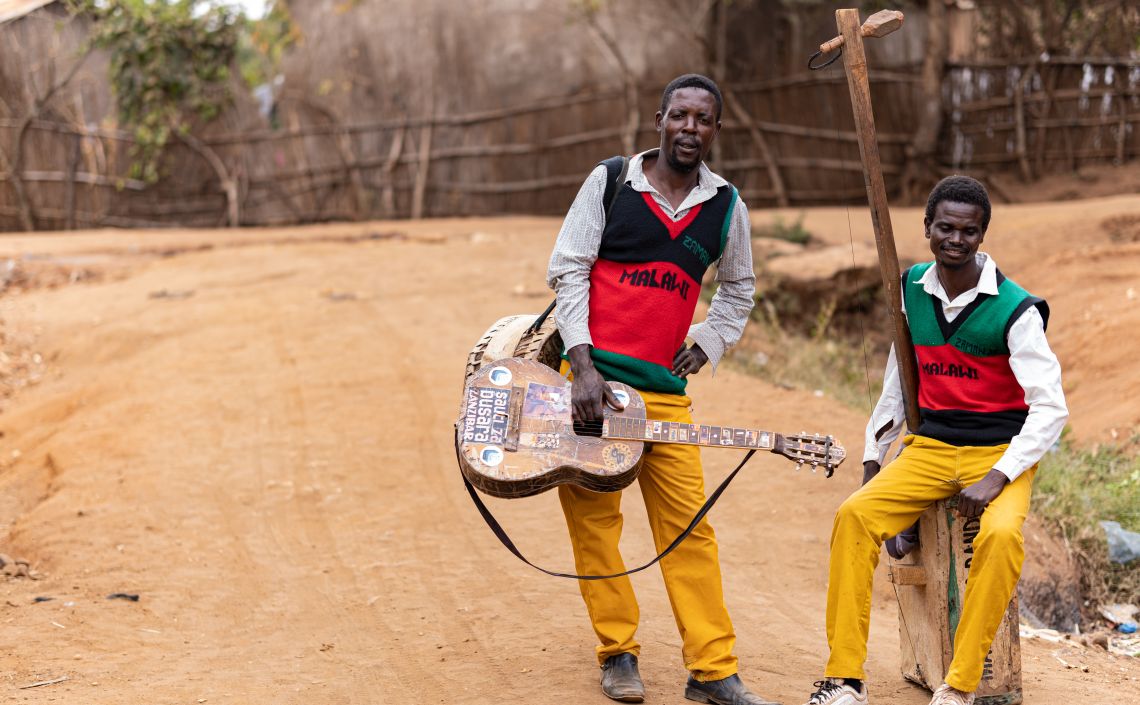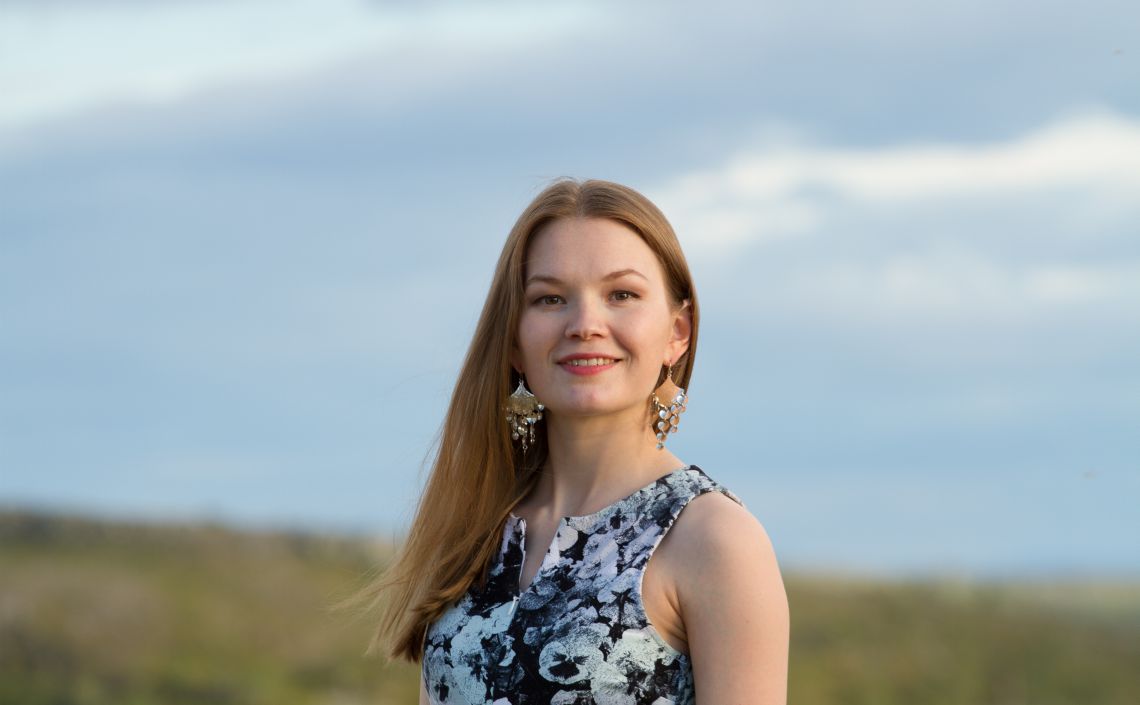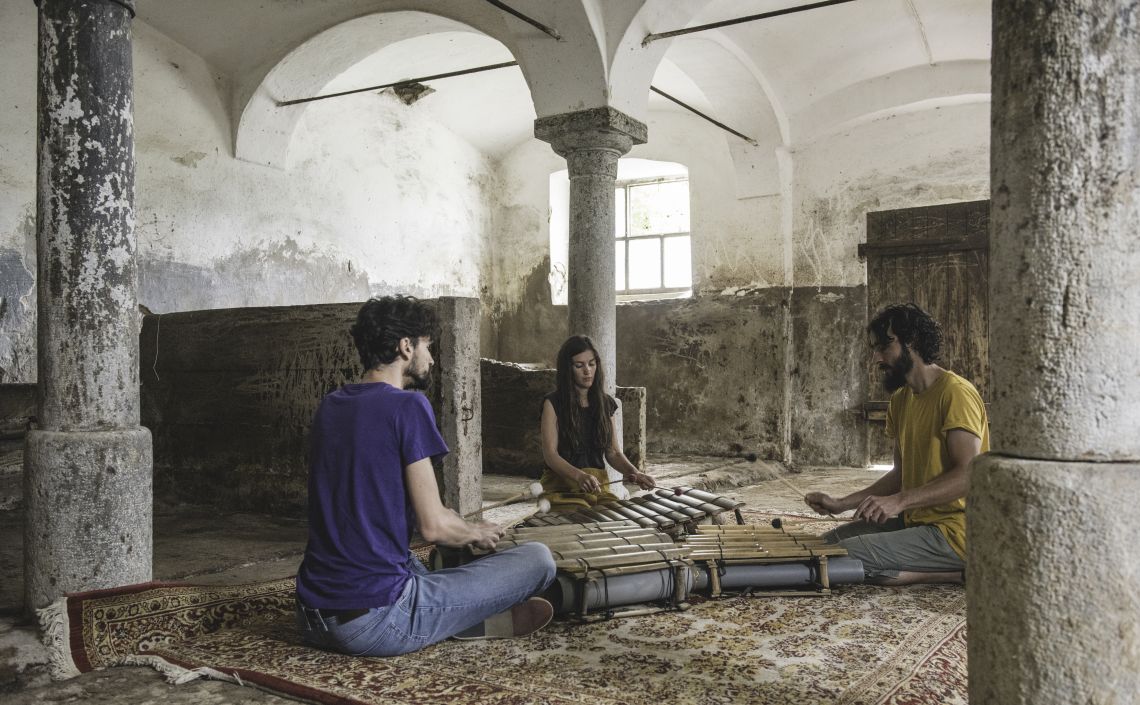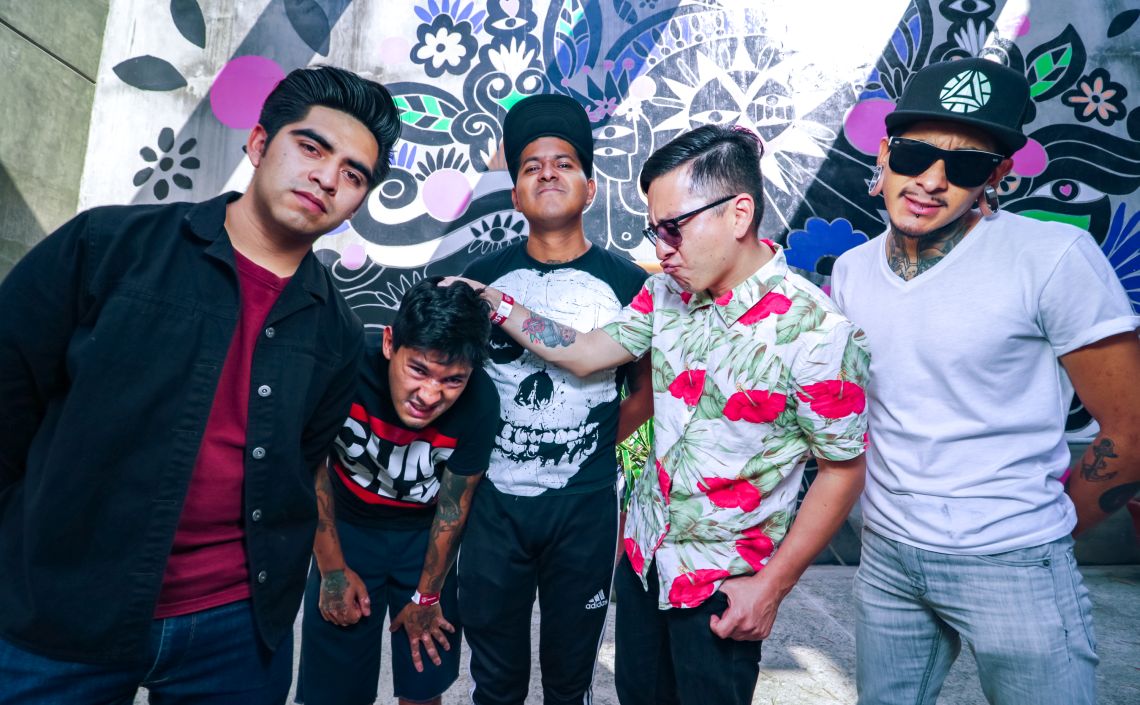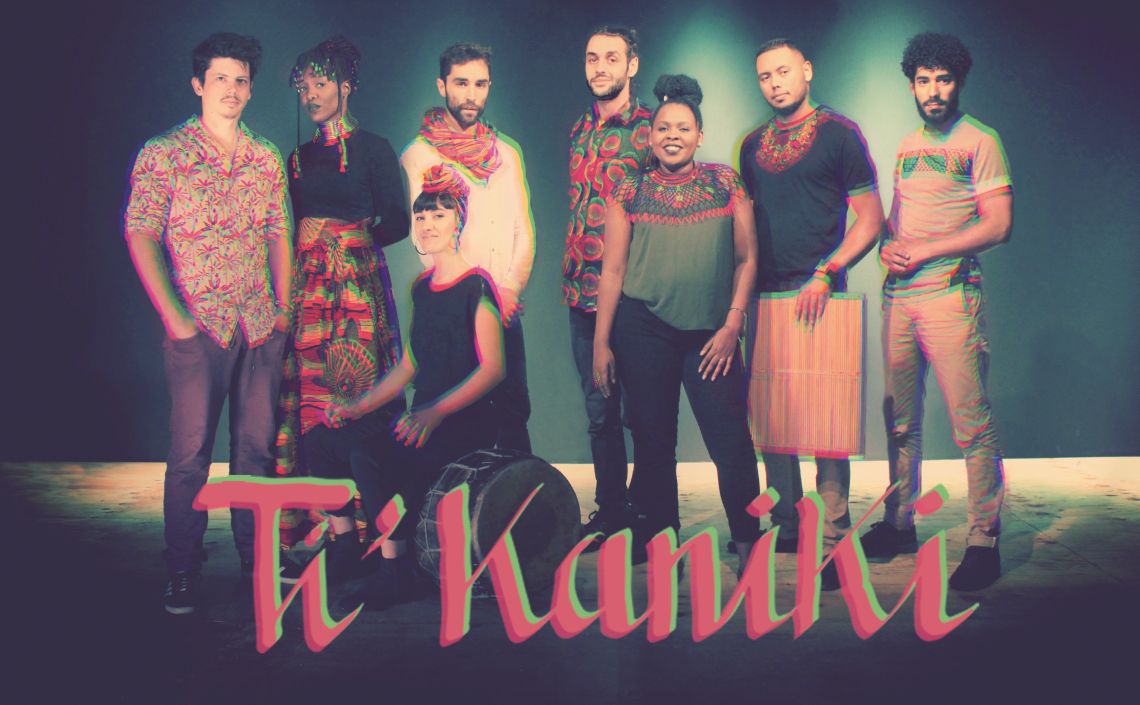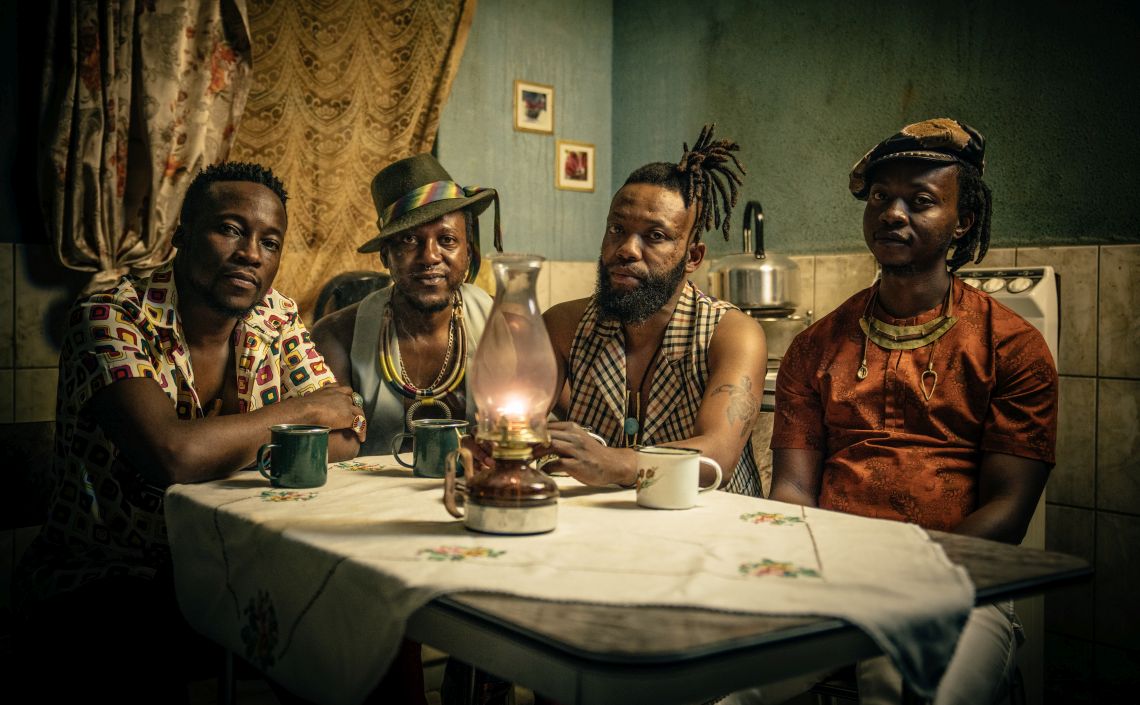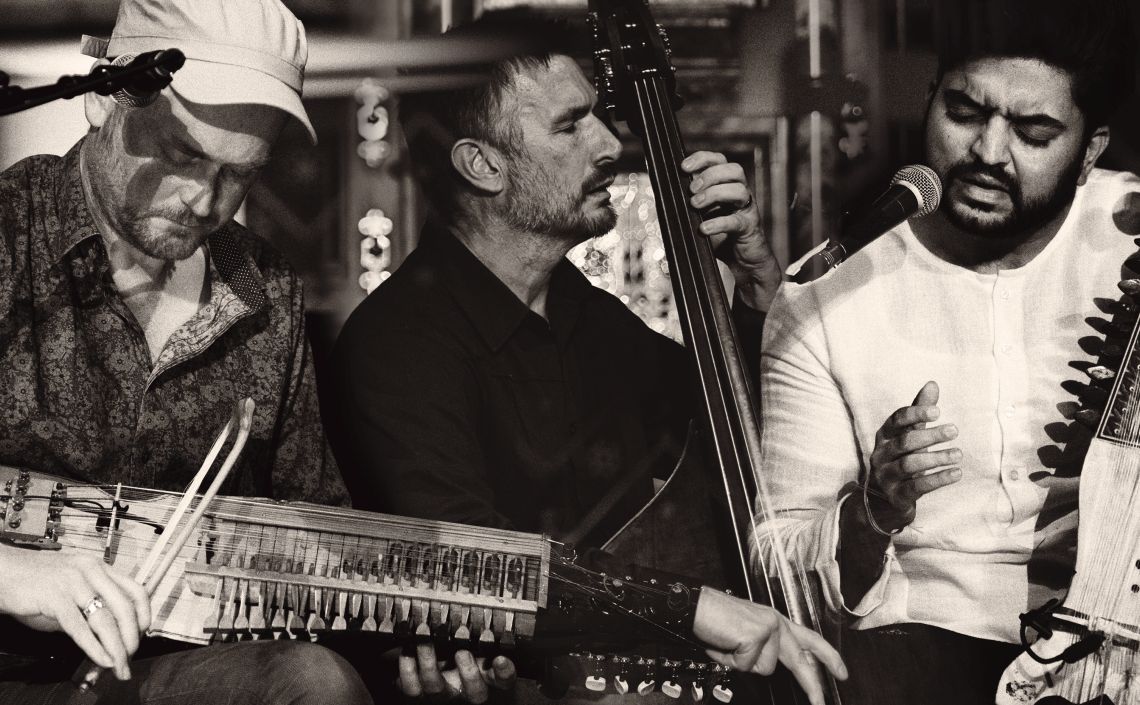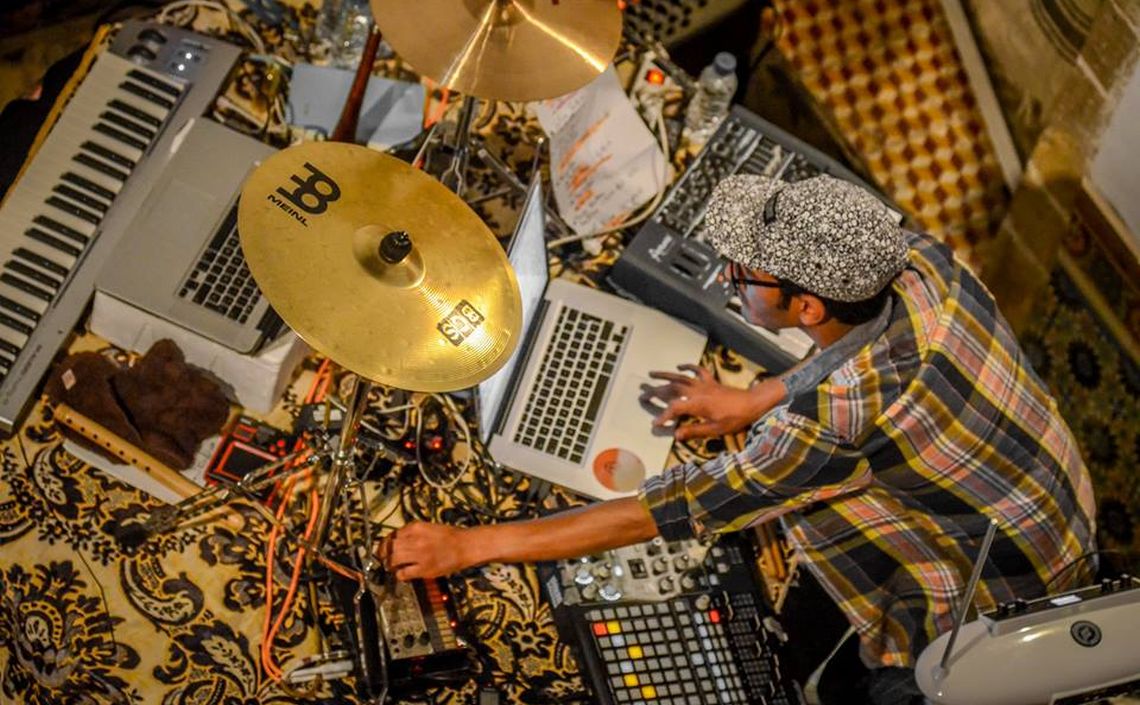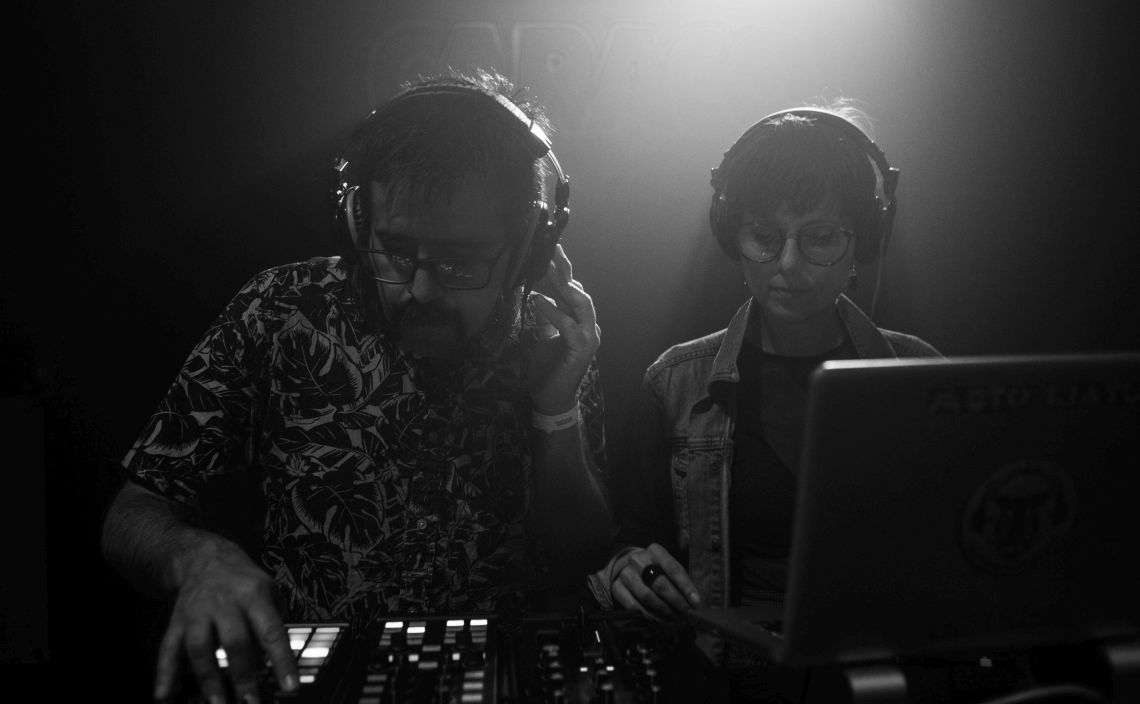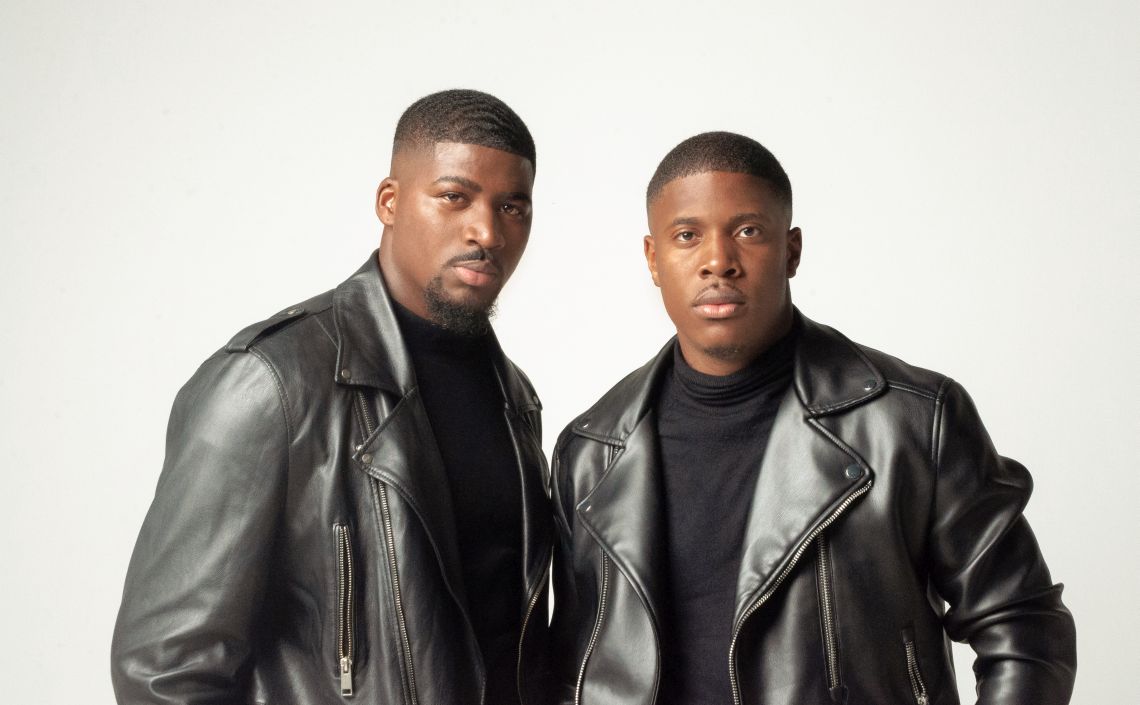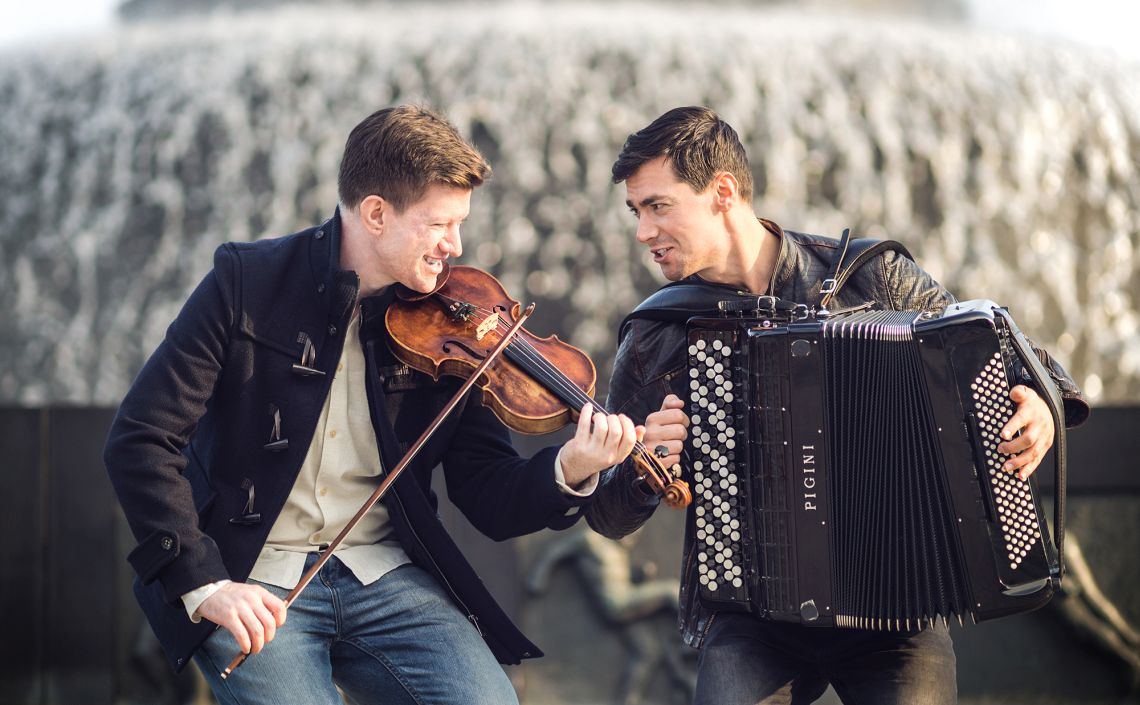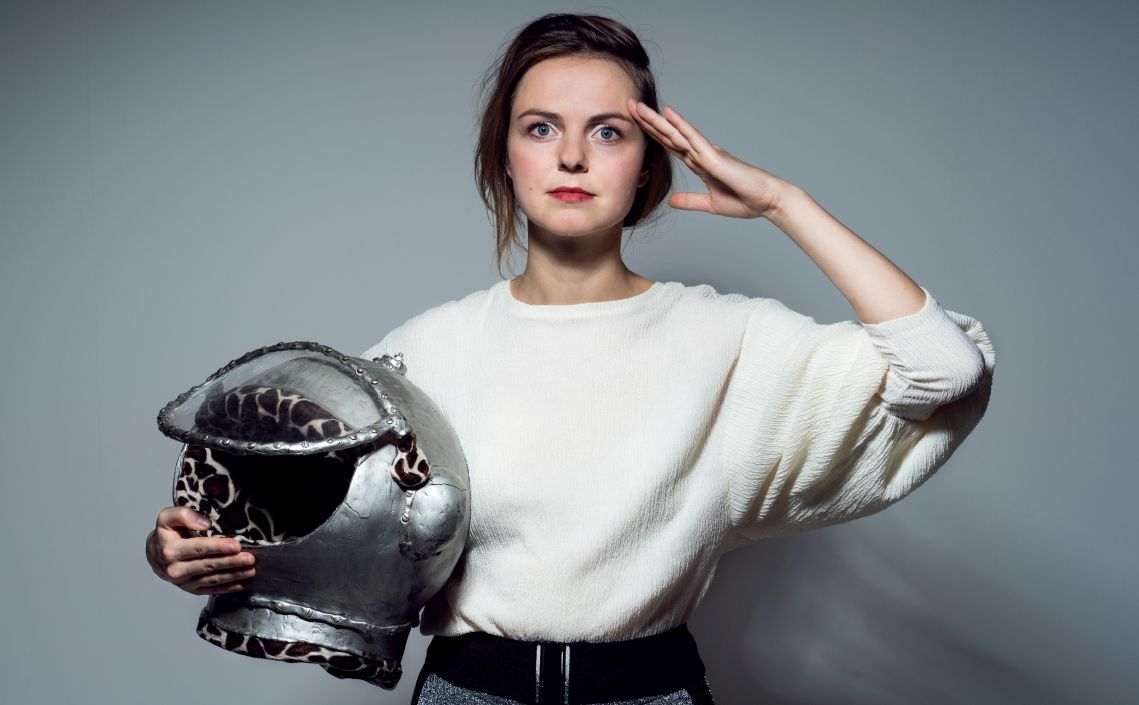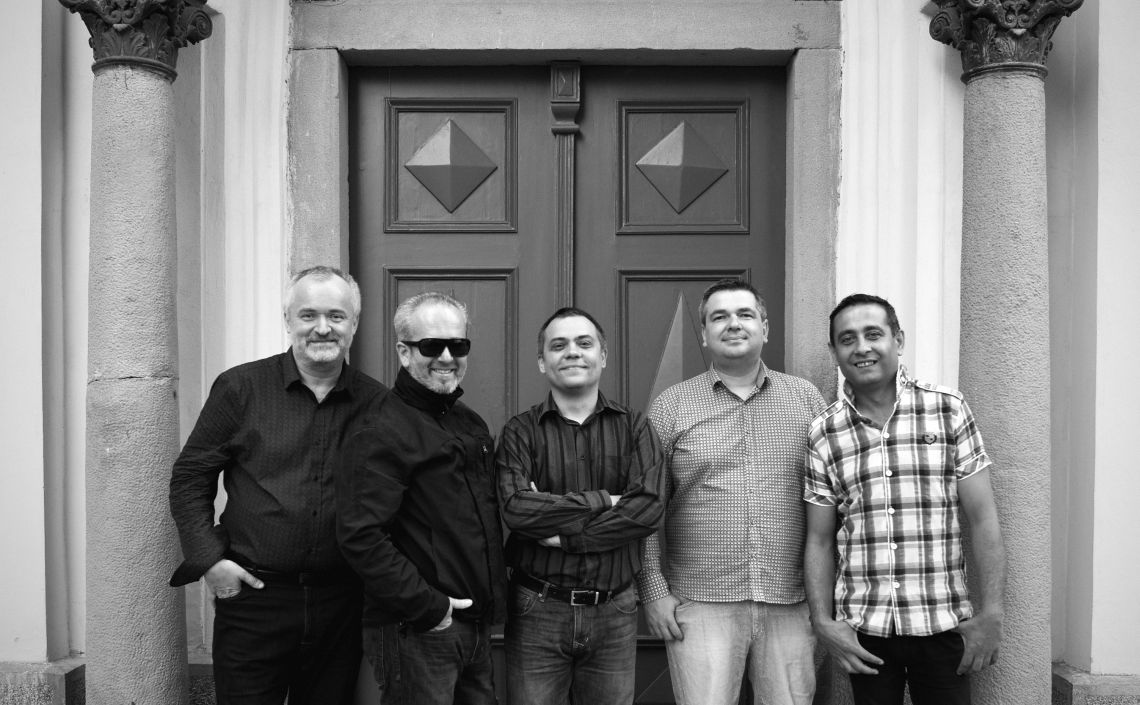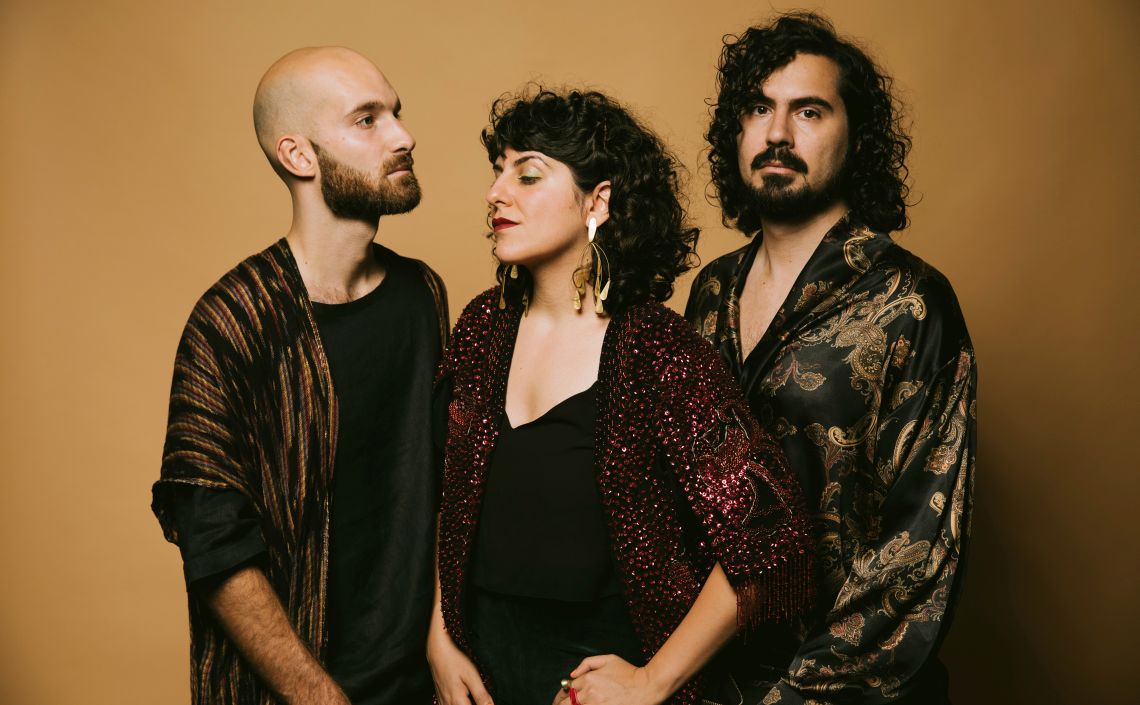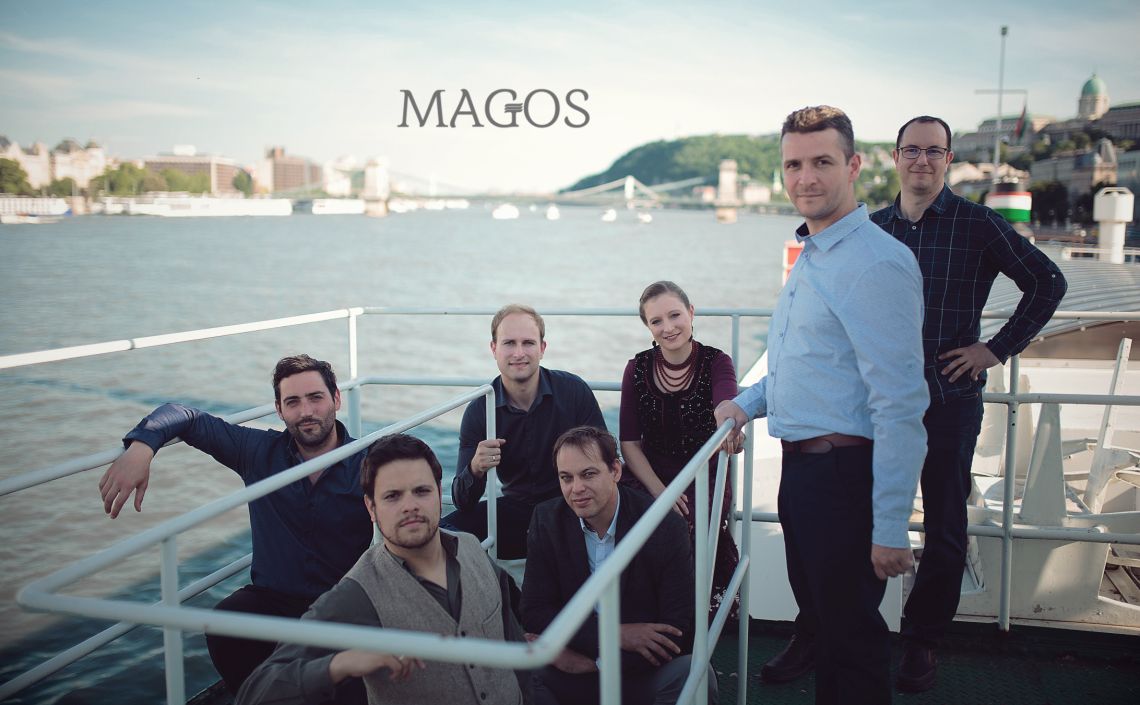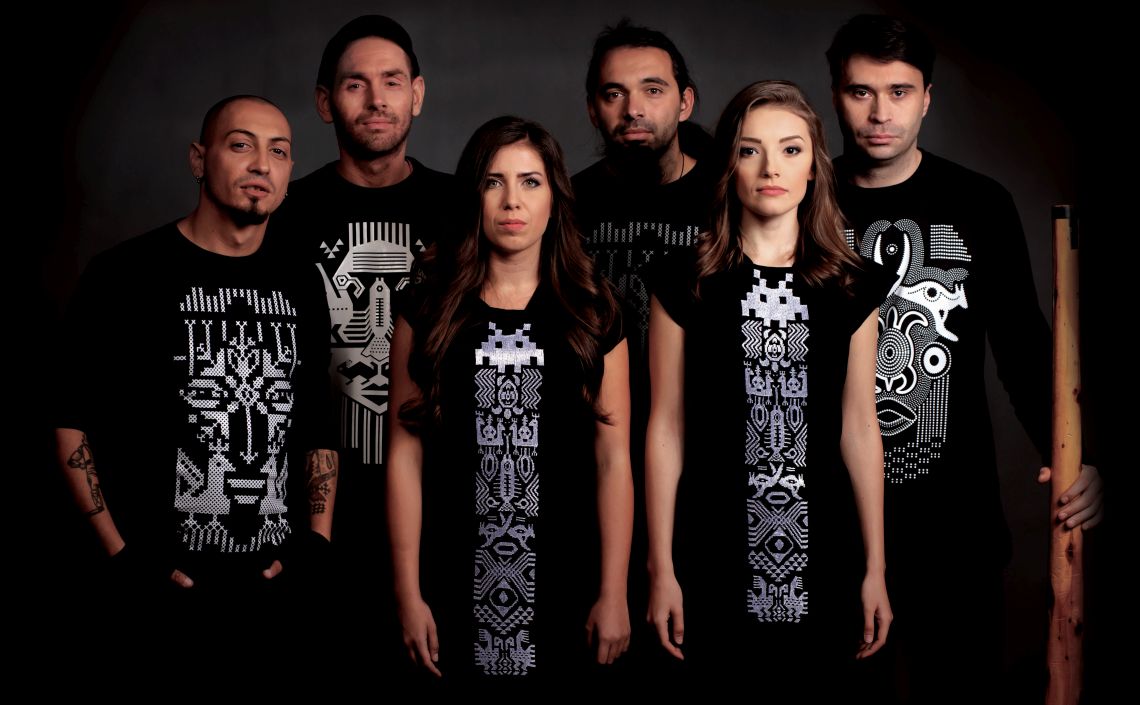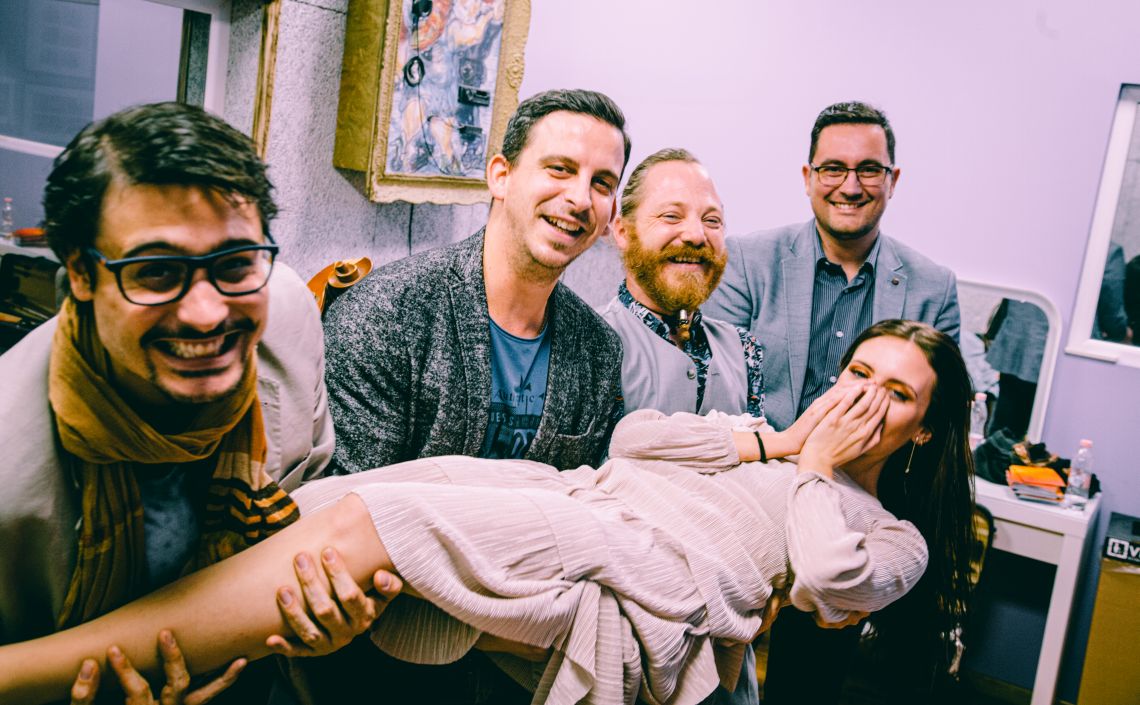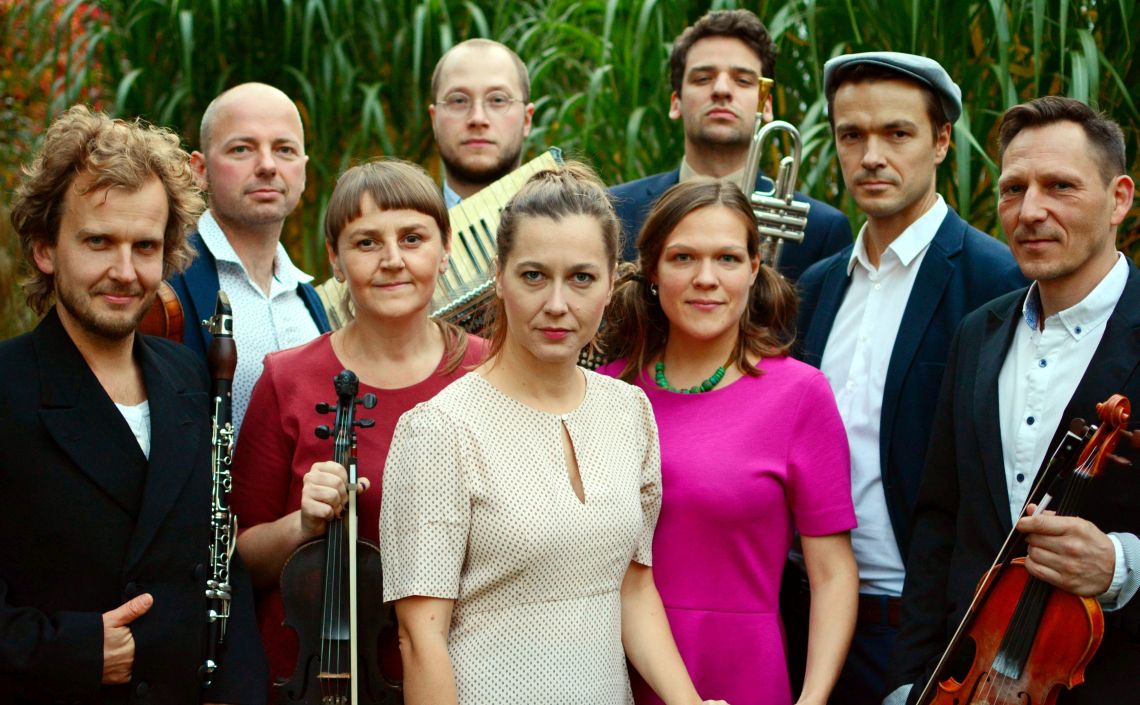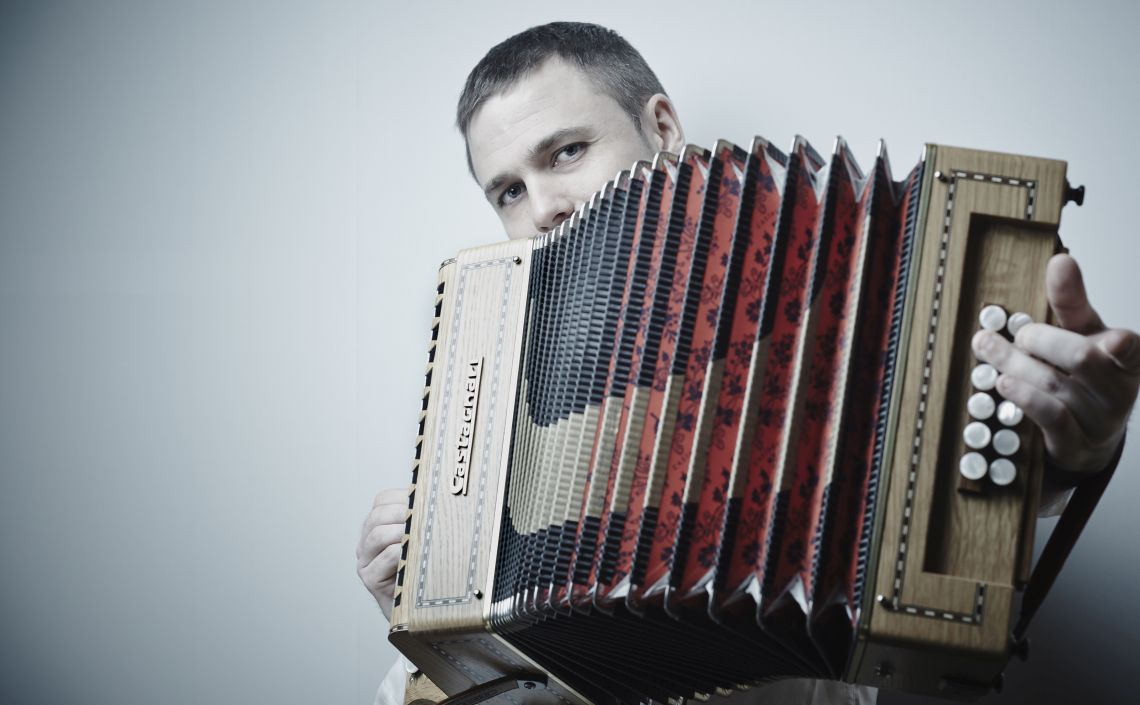- 23-27 OCT 2024
- Manchester, UK
The Showcases 2020
Alogte Oho & His Sounds of Joy (Ghana)
Alogte Oho grew up in the rainforest of southern Ghana, before moving up to the land of the Frafra people in the savannah of the north, where he first encountered the sounds of the singing and drumming of the church. Drawing on this inspiration, he became a well-known Frafra gospel singer, leading to an encounter with Philophon’s Max Weissenfeldt in 2013 and his first international release in 2019.
Ana Carla Maza (Cuba/Spain)
When Ana Carla Maza plays, you can feel that the music is in her blood. Born in Cuba into a family of jazz musicians, trained cellist and vocalist Ana Carla writes music that embodies passion, innovation and grace, allowing us to breathe a sigh of relief, knowing that the future of jazz and its cousins are in safe hands.
Bokanté (Guadeloupe/USA/Canada)
Combining rich sounds from the Caribbean, blues and Afro-global sound worlds, Bokanté – which means ‘exchange’ in Creole, language of vocalist Malika Tirolien's childhood island of Guadeloupe – take their musical trails and an international line-up to counter the rising tide of exclusion and human indifference with a wake-up message of lyrical positivity and beauty.
Bríghde Chaimbeul (UK)
Growing up on the Isle of Skye, Bríghde Chaimbeul has developed her own style of arranging for Scottish small pipes that emphasises their subtlety, rich texture and drones. This acclaimed young pipe pioneer draws you in, and draws inspiration from a variety of piping traditions including Cape Breton, Eastern Europe and Ireland.
Dalinda (Hungary)
Based in Budapest, Dalinda are an a cappella trio performing Hungarian folk songs with a modern and polyphonic twist. Three distinctive voices bring new attitude to a common human experience, shared in folk music and shared with the voice - ‘the purest source of our self-expression’.
Dongyang Gozupa (South Korea)
Not quite satisfied with having to live with one foot in a progressive rock band and the other in a Gugak (traditional Korean) band, Eunhwa, Wooyoung and Dohyuk decided to fuse the two genres. The result? You won’t believe that they are only three on stage, with the Yanggeum (Korean hammered dulcimer), bass and percussion blending and creating an experience that is intense, powerful, beautiful and colourful.
El Khat (Yemen/Israel)
Playing on instruments – old, new, and some re-purposed from junk - El Khat are a Tel Aviv-based band delving into Yemen’s ancient culture and delivering an indelible stamp of polyphony, free improvisation, ancient folk songs and attitude. The band name refers to the social custom of chewing khat, a highly addictive leaf. Make of that what you will…
Fanfara Station (Tunisia/USA/Italy)
Fanfara Station celebrates the epic feats of the Mediterranean migrants and the musical cultures of the African diaspora that they bring to connect the Middle East, Maghreb, Southern Europe and America. Charles Ferris, Ghiaccioli e Branzini and Marzouk Mejri combine the power of a brass band with electronics meeting North African vocals and percussion.
Fulu Miziki (DR Congo/Uganda)
Since 1999, founder Pisco Crane has worked tirelessly to develop a musical genre that is built on the sound of found items and it is now ready to take the world by storm. Featuring the amazing Lady Aicha on vocals, Fulu Miziki inspires eco-consciousness, resilience, creativity and offers a heavy dancefloor shakeup.
Hugar (Iceland)
Combining a shared passion of music and an impressive resumé working alongside Icelandic luminaries, Icelanders Hugar are multi-talented instrumentalists Bergur Þórisson and Pétur Jónsson who have forged a beautiful ambient slowmex musical lane, glowing with their own genre-defying sound.
Justin Adams & Mauro Durante (UK/Italy)
What does post-punk London and the spell-binding sounds of Southern Italy’s taranta have in common? More than you might think. In this driving duet, Justin Adams (Robert Plant, Tinariwen, Rachid Taha) and Mauro Durante (Ludovico Einaudi, Canzoniere Grecanico Salentino) come together to create a whole new type of earthy, raw and emotive blues.
Madalitso Band (Malawi)
Intuitive, authentic and full of ruthless rhythms, the two-man Madalitso Band will inspire you to clap, dance, and refresh your vision of southeastern African music. Singing in Chichewa, their latest album Wasalala is stripped back, raw, down home. Proud of their D-I-Y ethos, they say "why should we buy our instruments, when we can build our own, and get the sound we want?"
Marja Mortensson (Norway)
Sámi joiker and singer, Marja Mortensson and her trio are dedicated to protecting the endangered South Sámi language, culture and music. Through historical recordings, they have re-learned some of the traditional joik-s – expressive songs of feeling, that have been silent for far too long - to create a unique and relevant contemporary soundscape which stems from deep understanding and adherence to tradition.
Onuka (Ukraine)
A bridge between past and future, Onuka, meaning ‘granddaughter’ in Ukrainian, pays tribute to lead singer Nata’s grandfather, a famous craftsman of traditional Ukrainian musical instruments. His most precious gift was the handmade sopilka folk flute– an essential ingredient in creating Onuka’s innovative 21st-century electro-folk.
Son Rompe Pera (Mexico)
Originally performing alongside their father, the Gama brothers grew up on the outskirts of Mexico City playing marimba at local events. Via a short youthful rebellion to various punk, garage, rockabilly and ska bands, they now return to their marimba roots with a fresh latin-punk-cumbia approach.
Ti’kaniki (La Réunion/France)
In this band, there are no lead singers, everyone sings and plays and all members share the same collective passion for Maloya, traditional music from La Réunion. Though the music is rooted in the island’s complex and painful history, Ti’kaniki will invite you to dance and celebrate life.
Urban Village (South Africa)
Urban Village encourages, motivates and entertains, they awaken cultural and traditional consciousness and encapsulate the teachings of the elderly in their unique blend of new folk music, Zulu rock, Xhosa funk, mbaqanga and maskandi, layered in electric and acoustic melodies.
Yorkston/Thorne/Khan (India/UK)
They are: James Yorkston, key singer-songwriter on the Scottish folk scene on guitar, nyckelharpa and voice; Jon Thorne, jazz double bassist with electro outfit Lamb; and Suhail Yusuf Khan, multi-awarded, seventh-generation sarangi player and classical / sufisinger from New Delhi. Put them together and you are moved into an emotional landscape of improvisations, raga roads, heart songs that reach into tradition and out to the contemporary.
The Club Summit 2020
Guedra Guedra - كدرة كدرة (Morocco)
Casablanca’s DJ, producer and sound researcher Guedra Guedra - كدرة كدرة , is driven by a desire to explore and research African ancestral rhythms and rituals. His performances bring this to light, fiercely blending contemporary electronic with polyrhythms and his plethoric bank of field recordings, taking you on a journey from psychedelic vintage to global bass.
Moto Kiatu (Spain)
Producers, DJs and founders of Sonidero Mandril collective, Veinn and Sinsistema present Moto Kiatu, or ‘hot shoes’ in KiSwahil. After living in Senegal and South Africa, Veinn creates her bass-heavy vibe to complement Mexican DJ Sinsistema’s experimentation on tropical sounds. It’s an explosive mix.
Nickodemus (USA)
New York City-based Nickodemus is not a new name in any sense. Touring as a DJ since the mid-90s, he is an experienced music traveller and is the man behind the label Wonderwheel Recordings. Rooted in bringing the sounds of the globe to the dancefloor, he has done mixes for artists including Mr Scruff, Quantic, Bomba Estereo, Thievery Corporation and more.
Studio Bros (São Tomé and Principe/Portugal)
Fábio Miguel ‘famifox’ and Miguel Batista ‘nunex’ started their journey in 2007, producing and mixing traditional African rhythms with electronics. This Lisbon-based duo have been making their mark on the afro-house club-scene; that recognition continues to grow as their sound reaches out to international stages.
Club Duna: The Regional Stage 2020
Almir Meskovic & Daniel Lazar (Serbia/Bosnia Herzegovina/Norway)
With roots in the Balkans, Almir Meskovic and Daniel Lazar both studied at the Norwegian Academy of Music and have collaborated in a range of styles and genres. This virtuoso duo brings the accordion and violin together through the rhythms of the Balkans to Scandinavian folk and Roma repertoire.
Babra (Hungary)
The dynamic and varied music of the South Slavs who, centuries ago, settled along the banks of the Danube, is rarely performed. Here we have Babra, who renews this great string-band tradition with youthful energy, performing on the tamburitza (plucked string instrument), alongside polyphonic singing, clarinet, accordion, saxophone and percussion.
Golnar & Mahan Trio (Iran/Canada/Austria)
Golnar Shahyar (vocals, guitar), Mahan Mirarab (fretless guitar, oud) and Amir Wahba (percussion): they carry the traditions of Iran with them on their journey, adding influences of jazz and folk en-route. A trio of creative lyricism, presence, emotion and commitment.
Magos (Hungary)
Magos live the traditions of folk music, often taking part in field-work in Transylvania so that they can then share their musical experiences and the original tone of the Carpathian Basin in their strong tanchaz sessions and concerts. This committed award-winning Budapest band present music from Kalotaszeg, Mezőség and Székelyföld as well as Hungarian traditions from Szatmár and Dunántúl.regions.
Oratnitza (Bulgaria)
Originally having met as street musicians, Oratnitza are a Bulgarian fusion band with their three instrumentalists and three singers growing up with not only the sounds of the local folk music but also of contemporary bass and hip hop. The band interprets traditional Bulgarian songs in a way our generations can truly embrace.
Ötödik Évszak (Hungary/France)
Lead by Buda Folk Band’s Sándor Csoóri Jr., all members of Ötödik Évszak are well-known figures in the Hungarian folk scene, including Hungarian-French lead singer Izabella Caussanel. Carpathian Basin folk music is improvised over and creatively fused with a fresh taste of chanson and French poetry.
Tęgie Chłopy (Poland)
Tęgie Chłopy continues the traditions of the great live dance music parties of the Central Polish Kielce Region by reviving the music that used to be performed in the villages; lifting ceilings with their foxtrots, oberek-s and mazurek-s, nostalgic tangos and waltzes – making dancing irresistible.
OFFWOMEX 2020
Xabi Aburruzaga (Spain)
Basque trikitixa (button accordion) player and composer, Xabi Aburruzaga, percussionist Aitor Uribarri and acoustic guitarist Eriz Perez take us on a reflective trio journey of experience, travel and love with compositions inspired by people whom Xabi has met, by his past and by Basque culture.


